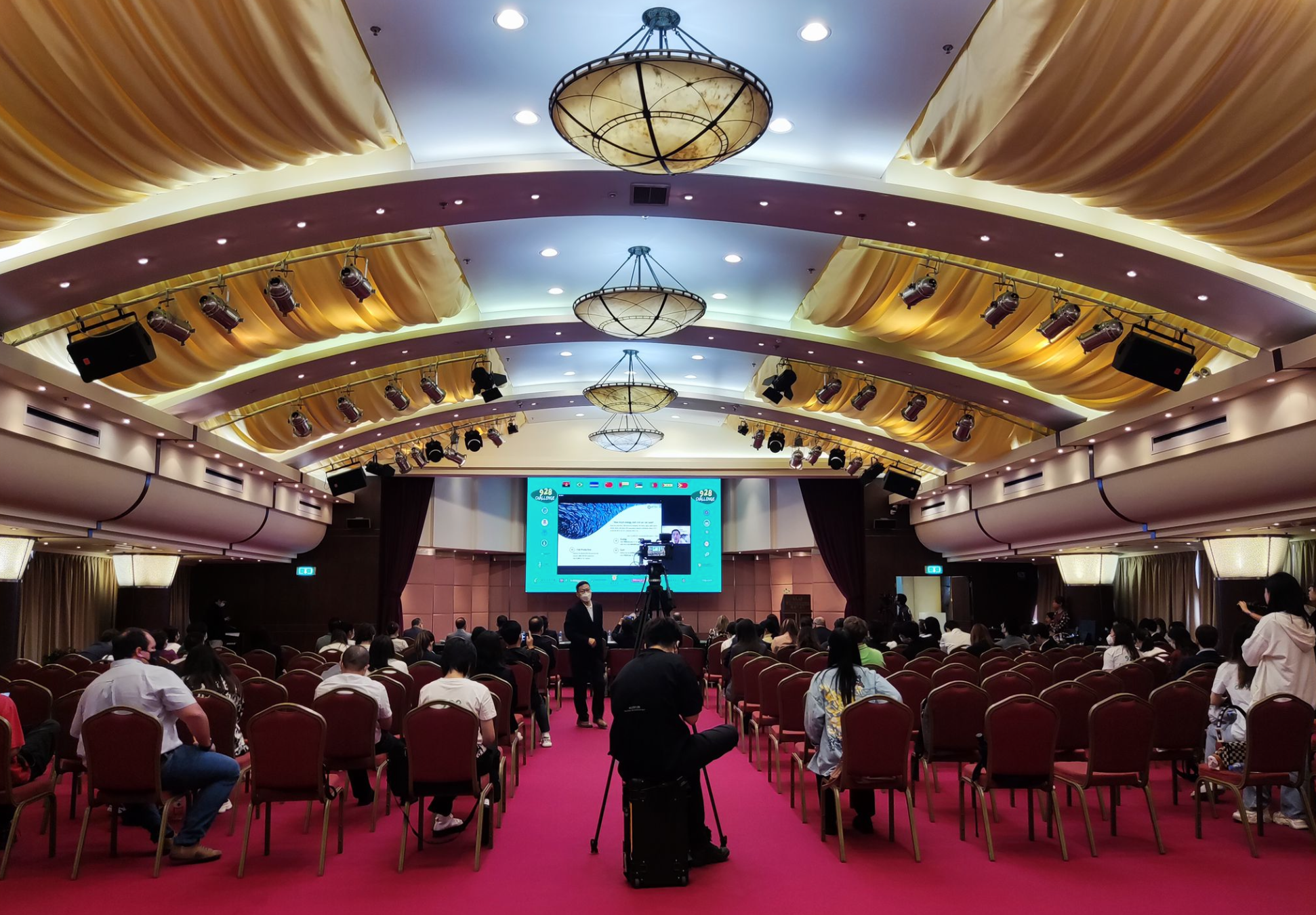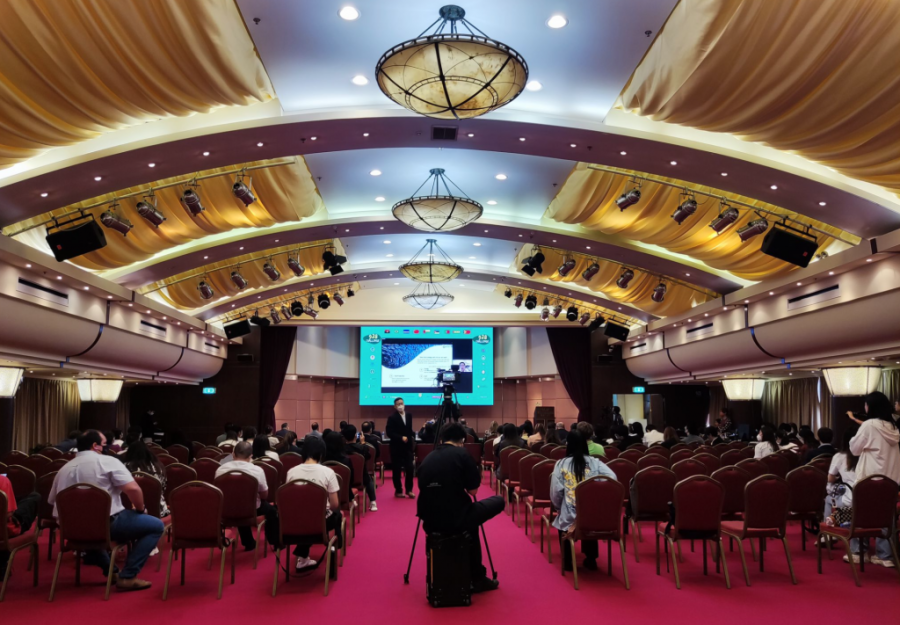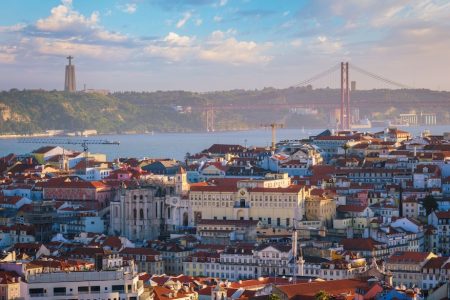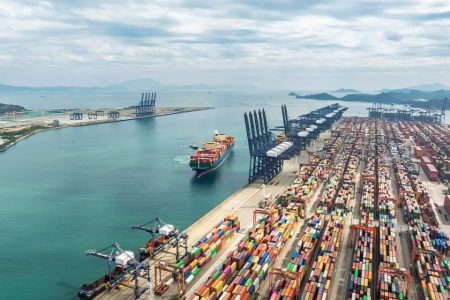Mainland China’s OneDrop, an app to prevent food waste, and a team from the University of Shenzhen have won this year’s 928 Challenge in the startups and universities categories, respectively, defeating 14 other teams who made it to the final at World Trade Center Macau on Saturday.
The University of Shenzhen team created an oxygen generator using AI for aquaculture. Mozambique’s Eduardo Mondlane University won second place in the universities category, with a project focused on producing biogas from waste in poultry farms, while Beijing Foreign Studies University secured third place with a project on coffee culture for Timor-Leste.
Two more mainland Chinese startups – Ecomel Ecological & Technology with a water filter solution project, and Reconnect Environmental Institute, who created a sustainability-related educational app – came second and third, respectively, in the startups category.
Around 1,250 participants from 250 teams joined the startup competition for Portuguese-speaking countries (PSC) and China this year.
After three weeks of online training in the 928 bootcamp, which included learning about the economic development and business opportunities in the PSC and China’s Greater Bay Area (GBA), 180 teams got to submit their business pitches linking markets in China and the PSC.
A total of 35 mentors and judges then selected this year’s best 16 teams to proceed to Saturday’s final, where each of the teams made a business pitch in front of a panel of 10 judges, who then voted to select the top three teams in both categories.
The judges in the final were Banco Nacional Ultramarino (BNU) CEO Carlos Alvares, Lord Stow’s Bakery CEO Eileen Stow, C&C Lawyers Founding Partner Rui Pedro Cunha, Macao Hong Kong affairs consultant Nestor Ng, Moxlink Managing Director Karen Neng, Air Asia Hong Kong and Macao CEO Celia Lao, Well Link Bank Director of Risk Management Joao Rato, SJM Resorts Director of Sustainability Bernard Cheng, University of Macau’s Head of Innovation Centre Jerome Yen and Sinovo Enterprise Incubator Vice-President Michelle Luo.
Also in attendance at Saturday’s event were Portugal’s Secretary of state for Digitalisation and Administrative Modernisation Mário Campolargo, via online video call, and Economic and Technological Development Bureau’s Head of Technology Alex Che Weng Keong. Both highlighted the importance of strengthening business cooperation between Macao and the PSC.
The 2nd 928 Challenge was sponsored by Galaxy Entertainment Group, ISA Tantec, BNU, Luso Bank International, Companhia de Electricidade de Macau, CESL Asia, MdME Lawyers, C&C Lawyers and Fidelidade Seguros.
Co-founded by City University of Macau lecturer Marco Rizzolio and Dean of the Faculty of Business José Alves, the 928 Challenge aims to build bridges and develop entrepreneurship between China and PSC through sustainability-oriented businesses, while also deepening academic collaborations between universities.
“Entrepreneurship support is critical to developing Macao as an innovation platform and creating tomorrow’s leaders,” said the organisers.
Last year’s inaugural 928 Challenge was joined by 780 students representing 51 universities making up a total of 153 teams. A team from Portugal’s University of Porto and a Guinea-Bissau’s Universidade Lusófona Guiné team, came first and second, respectively, while two teams – State University of Rio de Janeiro, Brazil and Guangdong Polytechnic Normal University (China) – shared the third place.
The competition – which won an award from Angola Innovation Summit 2022 in July – was named after nine cities in the GBA, two special administrative regions and then-eight PSC member states of the Forum for Economic and Trade Co-operation between China and Portuguese-speaking Countries (Macao), better known as Forum Macao.
Equatorial Guinea officially became the 10th member of Forum Macao – the group’s 9th Portuguese-speaking member – in April this year.






